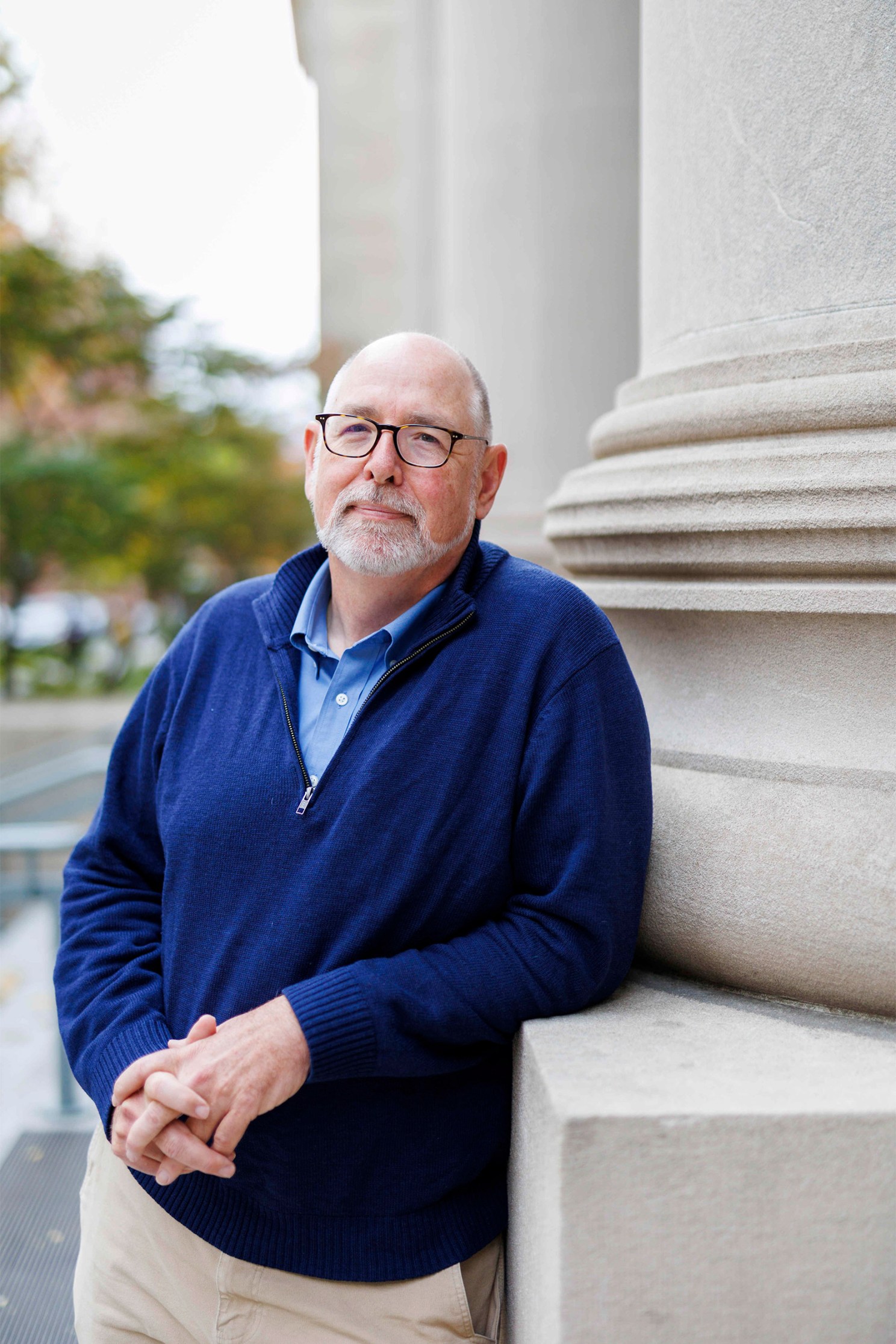
Andrew Mergen.
Niles Singer/Harvard Staff Photographer
Voice of DOJ experience makes case for ‘deference doctrine’
Visiting professor who served 3 decades with Justice Dept. sees urgent need to protect presumption of regularity
When a decision by federal agencies or officials is challenged in court, judges implicitly trust that the government is operating in good faith when it explains how and why it made the decision. It’s a tradition of deference known as the presumption of regularity.
Since January, however, a growing number of federal judges have sharply criticized Trump administration attorneys over their conduct and questioned their truthfulness in several high-profile immigration enforcement and deportation cases, as well as others involving law firms and federal workers. Most recently, a judge in Virginia raised concerns about the actions of federal prosecutors in the James Comey case.
Andrew Mergen spent three decades as an attorney at the Department of Justice and is now a visiting assistant clinical professor of law and faculty director of the Emmett Environmental Law & Policy Clinic at Harvard Law School. In this edited conversation, he explains why losing the court’s confidence could significantly harm the DOJ.
Where does this presumption of regularity come from?
There’s a common-sense notion that we assume that people in our day-to-day lives are doing what they are supposed to do. And in the government, the idea is that we should assume that government people are discharging their duties in an upright and forthright and legal way. Historically, the presumption began as a way of filling in evidentiary gaps, and it applied to both private officials and to corporate officers. The common example is, if a document was filed from a corporation with a corporate seal on it, we assume that it was filed by a person authorized to submit that document. You could call it a deference doctrine, or you could call it a working principle. We assume that people have discharged their official duties in a forthright, honest way, and what that principle means is that the courts will insist on some meaningful evidentiary showing before entertaining doubts about official acts or documents.
“The majority of career civil servants are forthright, candid, honest people. They’re trying to do the best for the American people.”
Why do the courts offer it to the government?
Because it makes the government more efficient overall. Mostly what we’re talking about are public law disputes. For example, you might challenge a government decision to award a permit or start a ground-disturbing activity. That decision is typically reviewed on the basis of an administrative record that the government submits to the court. So, if the government says we’re going to build this rocket base, and we’ve looked at all the environmental harms and concluded that this is the best way to do this in a way that complies with environmental statutes, and here’s the record that we submit, no one asks: “Is this really the record?” The presumption is that the record is what the government says it is. To be sure, a person could argue that the record is incomplete, but the presumption requires the challenger to make some showing that the record is incomplete before a court will consider the challenge. This makes government more efficient. The presumption of regularity avoids us getting courts tied up in a lot of minutiae. The government says that the record was submitted and the person in charge of putting that together did all the right things and that is the end of the story.
How unusual is it to see judges openly express skepticism about the government’s intentions and veracity?
There’s a presumption of regularity and then there’s also the special duty that governmental lawyers have as officers of the court. I spent 33 years as a Justice Department attorney. I was in court a lot and I understood that every time I stood before a federal judge I had a responsibility as a member of the bar — all lawyers have that — and then I had a special obligation as a member of the federal government. I knew that I had to be candid. I knew that I had a special obligation to be truthful. I owed the court a real explanation of why the government was doing something different or had changed its mind that the judge was rightfully entitled to probe.
Part of what we’re seeing in, for example, the Kilmar Abrego Garcia situation is a real doubt about whether the government is being truthful or hiding the ball. That’s a little bit different from a presumption of regularity. It’s in the same family, but also a bigger problem. If the judge doesn’t believe you, if a judge thinks you’re lying to them or concealing something, you are in a really, really bad place. Historically, the Justice Department has had a very good reputation for credibility, for forthrightness. Any time you talked to a judge or a clerk in the federal court system, someone would invariably say, “I read the government’s brief first because I expect the government’s brief to not be full of hyperbole and to tell the truth.” You’re obligated to zealously represent your client, but Justice Department attorneys have historically tempered that zealousness with their special responsibility for candor and credibility to the courts.
What danger does this doubt voiced by judges pose in the future?
What’s terrifying about this moment is that it will carry over. One of the things that’s really damaging about the way that the administration is treating the courts is that it is going to hurt the credibility of the Justice Department overall. Most cases in federal courts that the Justice Department defends are not things like extraterritorial extradition. They’re boring. And what we worry about is judges saying, “Can I trust the Justice Department in boring cases?” That is going to harm the government overall.




